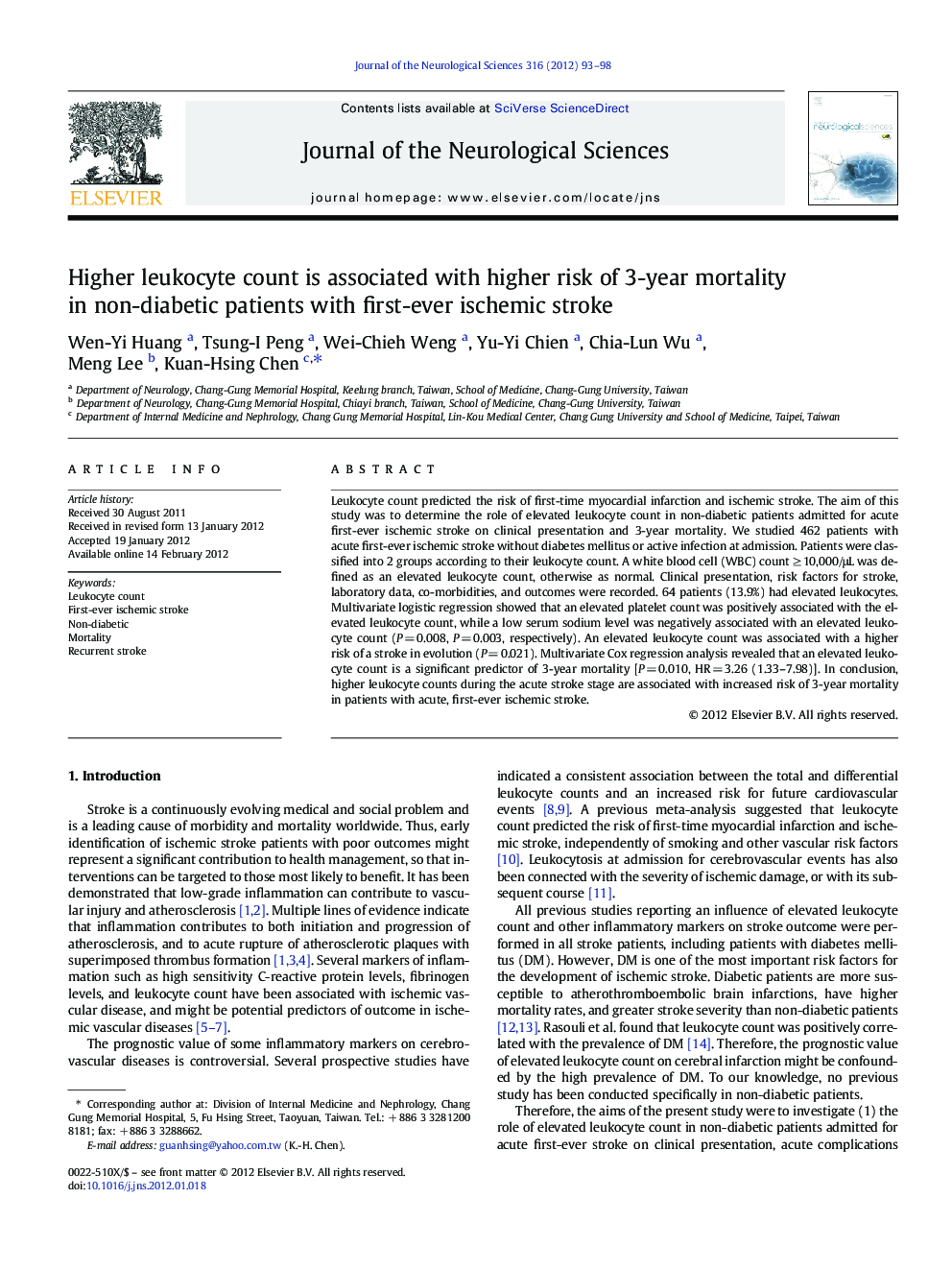| Article ID | Journal | Published Year | Pages | File Type |
|---|---|---|---|---|
| 8281267 | Journal of the Neurological Sciences | 2012 | 6 Pages |
Abstract
Leukocyte count predicted the risk of first-time myocardial infarction and ischemic stroke. The aim of this study was to determine the role of elevated leukocyte count in non-diabetic patients admitted for acute first-ever ischemic stroke on clinical presentation and 3-year mortality. We studied 462 patients with acute first-ever ischemic stroke without diabetes mellitus or active infection at admission. Patients were classified into 2 groups according to their leukocyte count. A white blood cell (WBC) count â¥Â 10,000/μL was defined as an elevated leukocyte count, otherwise as normal. Clinical presentation, risk factors for stroke, laboratory data, co-morbidities, and outcomes were recorded. 64 patients (13.9%) had elevated leukocytes. Multivariate logistic regression showed that an elevated platelet count was positively associated with the elevated leukocyte count, while a low serum sodium level was negatively associated with an elevated leukocyte count (P = 0.008, P = 0.003, respectively). An elevated leukocyte count was associated with a higher risk of a stroke in evolution (P = 0.021). Multivariate Cox regression analysis revealed that an elevated leukocyte count is a significant predictor of 3-year mortality [P = 0.010, HR = 3.26 (1.33-7.98)]. In conclusion, higher leukocyte counts during the acute stroke stage are associated with increased risk of 3-year mortality in patients with acute, first-ever ischemic stroke.
Related Topics
Life Sciences
Biochemistry, Genetics and Molecular Biology
Ageing
Authors
Wen-Yi Huang, Tsung-I Peng, Wei-Chieh Weng, Yu-Yi Chien, Chia-Lun Wu, Meng Lee, Kuan-Hsing Chen,
